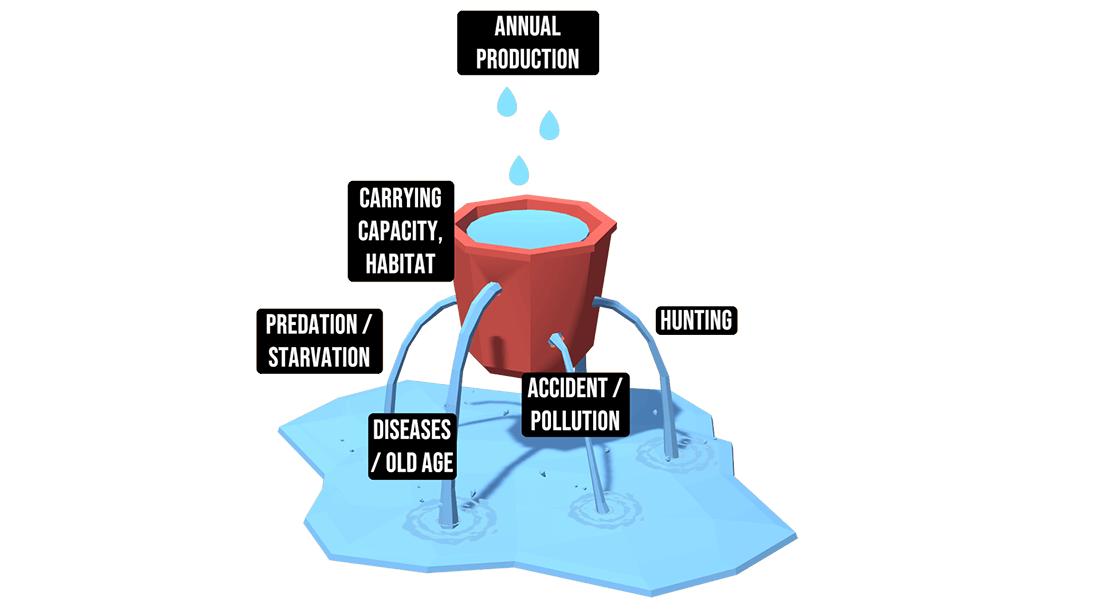Modern Wildlife Conservation

Native North Americans and early settlers to North America had unlimited hunting opportunities for food. People soon began to change the natural habitat to accommodate farms and towns. Market hunters hunted large numbers of animals to sell as food to the new settlers.
Wildlife populations began to decline with the loss of natural habitat and abusive harvest by market hunters. Man began to recognize that wildlife must be properly managed if it was to survive in healthy numbers.
Managing wildlife is a means to ensure that wildlife populations do not become threatened, endangered, or extinct. Wildlife management must consider habitat. Some other concerns to conservation are legal and illegal hunting, wildlife diseases, and land use practices. Suitable habitat is the key to wildlife survival. Therefore, the habitat must be managed to maintain breeding populations.
Together, we have a responsibility to protect animal populations for future generations. Therefore, wildlife conservation is everyone's responsibility.